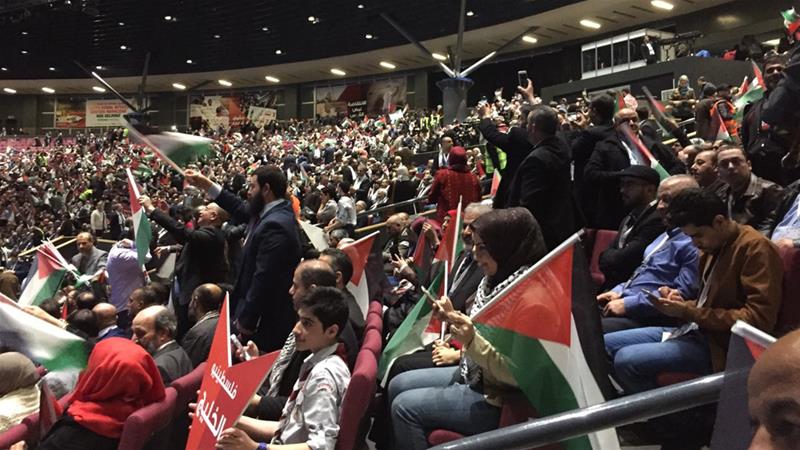New Palestinian group
March 1, 2017 | Expert Insights

Will they be able to synergize the movement?
On the 27th of February, dignitaries and members of the Palestinian diaspora announced the formation of a new body to represent the displaced community and help achieve the rights of the group. The announcement came during the Palestinian diaspora summit in Istanbul, Turkey with more than 5,000 members in attendance. The group is still yet to agree and assign a formal name, but the leaders of the conference signalled to it being announced in the coming months. The Palestinian Liberation Organization and Fatah did not take part in proceedings.
What is the group hoping to achieve?
The group is attempting to assist and support the Palestinian Liberation Organization or the PLO in their quest to reclaim Palestinian territories controlled by Israel. They also reiterated on multiple occasions that they do not wish to diminish the role or powers of the PLO and only seek to reform its structure. They are against the Oslo convention of 1993 and would like to the see an end to the agreement. The agreement is seen by Palestinians as a compromise on the future of the nation’s legitimacy and its people’s rights.
The group made it clear that they were not happy with the PLO’s internal structure and changes must be made in order for their goal to be attained. They outlined a need for a new legislative body made of democratically elected officials. They also wanted a general restructuring of the PLO to take on a more representative nature, such as electing officials and judges etc.
Is there a need for a New Body in Palestine?
With the re-election of Mahmoud Abbas and the encroachment of Palestinian territory by Israeli settlements, the diaspora may be growing increasingly frustrated with the direction of the Hamas and Fatah. Since 2007, the establishment of the state, the enforcing of the right to return and the issue of Jerusalem have seen no progress. The new group could now gain a strong backing and could be an alternative which could unite the people. It could put in place the steps needed to solve the riff with Israel and reinvigorate the quest for statehood.
During the conference in Istanbul there were multiple references to the Oslo Convention amongst members present. In the eyes of many Palestinians at the conference, the PLO has shirked their responsibilities to the Palestinian diaspora since the accords. Anis al-Qasem, one of the founders of the Palestinian National Council spoke of the Oslo agreement only protecting and prolonging the Israeli occupation. This has led to a widespread belief amongst the diaspora that the PLO has lost its former drive to establish the state and are willing to compromise the historic rights of Palestine. This points to a need for a party outside the two and the formation of such would be welcome in Palestine and abroad.
Assessment
The Palestine conflict is seen by many as the root cause (casus belli) of Islamic fundamentalism, around the world. Misguided youth in Yemen, Afghanistan and even in Kashmir, unfortunately draw inspiration from perceived injustices to the Palestine people. The conflict, now in its seventh decade and despite efforts from the UN and world leaders, appears in stalemate. With the end of the Syrian civil war and the ISIS facing imminent defeat in Mosul, Iraq, an opportunity for a new idea, may be presenting itself.








Comments